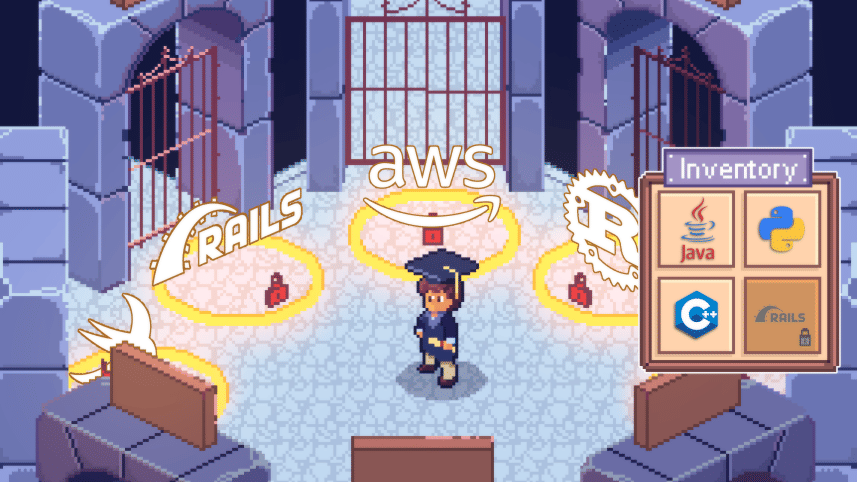Does the Computer Science curriculum in Bangladesh need a reset?

Picture this: You've just wrapped up your Computer Science (CS) degree from a top university in Bangladesh. You've got the grades, a solid CGPA, and have learnt everything taught in class by heart. But then, you start scrolling through job listings, and it feels like you've landed on another planet.
Even entry-level positions – be it software engineers or artificial intelligence (AI) and machine learning (ML) roles – often sound like they expect skills you barely touched in class. Suddenly, you're left wondering: Did my four years in university actually prepare me for the real world? Or is there something seriously off with the CS curriculum we're being taught under?
Understanding the problem at hand
The CS degree has long been the standard pathway for tech aspirants in Bangladesh. Yet with the field branching into subcategories like AI, Data Science, Cybersecurity, Fintech, Digital Health, etc., can a single, broad undergraduate programme still meet the needs of students and industry?
In this ever-expanding universe of subfields, a single, generalised undergraduate degree can begin to feel like a jack-of-all-trades programme that risks giving students only superficial exposure to areas they may later wish to master.
So, should our universities fragment the broad Computer Science degrees into narrowly defined and highly specialised degree tracks? To figure that out, we have to take into consideration Bangladesh's academic ecosystem, our students' readiness for early specialisation, and the practical constraints our universities face.
Could specialised tracks be the solution?
Specialised degree tracks offer many benefits to both academic and professional lives. By concentrating on a specific domain, like Data Science or Software Engineering, students gain in-depth knowledge of the theories, tools, and practices that define their field. Graduates emerge with expertise that often takes years to acquire through on-the-job experience, boosting their confidence and signaling to employers their immediate value.
From an academic standpoint, focused tracks foster the creation of dedicated research labs and industry collaborations, giving students access to cutting-edge projects and real-world datasets.
Farnaz Fawad, a Computer Science and Engineering (CSE) graduate from BRAC University, currently working at a private company, remembers feeling constrained by a curriculum that treated Computer Science as a monolith, despite the field's immense internal diversity.
"In my opinion, the current CS curriculum in most universities feels quite outdated," says Farnaz. "While it's important to learn the fundamentals, the way it is structured doesn't really allow students to explore the different branches within Computer Science."
Farnaz also pointed out the difficulties this causes when students step into their professional lives, "When you enter the job market in Bangladesh, you often have to learn entirely new tools, technologies, or even legacy systems. In some cases, it is highly like that these weren't covered or even discussed during your academics."
Mehidy, a CSE graduate from National University, currently working as a software security engineer at a private bank, expressed similar views, "My CSE degree gave me a broad foundation across many areas of computing. That breadth actually helped me discover my passion for Cybersecurity, which wasn't something I was initially aware of. I had the freedom to explore different domains before choosing what truly excited me."
"However, once I found that interest, I realised how little depth my formal education offered in the field," continues Mehidy. "To pursue a career in Cybersecurity, I had to seek out a lot of external resources such as online courses, certifications, and training programmes to build the practical skills and domain knowledge the industry demands. If our academic structure allowed for more focused specialisations within the CS or CSE curriculum, like offering tracks in Cybersecurity or AI, it would empower students to go deeper once they have identified their interest, without having to start from scratch after graduation."

The case against specialised CS tracks in Bangladesh
Not everyone, however, agrees with the concept of early specialisation in the CS field. Polash, who graduated from North South University (NSU) and is now working at a German IT firm as a data analyst, thinks that a CS or CSE degree, despite some shortcomings, is the best way forward.
"Having completed a CSE degree, I can confidently say it was instrumental in helping me discover where my true interests lie. Without that solid foundation – covering everything from algorithms and data structures to networking and databases – it's very difficult to pinpoint your calling," says Polash.
Polash adds, "In Bangladesh, many students complete their higher secondary (high school) education with only a cursory exposure to computing, and they simply aren't ready to dive straight into specialised topics. A broad undergraduate programme gives them the time and context they need to explore, learn, and choose the path that suits them best."
Universities in countries like the US, UK and Australia have already started offering specialised degrees within the CS field at the undergraduate level. However, that might not yield desired results in the context of Bangladesh.
Prof. Tanzima Hashem, Head of the Department of Computer Science and Engineering, Bangladesh University of Engineering and Technology (BUET), cautions against simply importing the specialisation models from countries where well-defined subfields are backed by robust research ecosystems, extensive industry linkages, and mature job markets.
"In countries like the US, UK, and Australia, specialised roles in AI, Data Science, or Cybersecurity are well-defined, supported by mature job markets, well-funded research ecosystems, and strong academia–industry linkages," says Prof. Hashem. "In Bangladesh, however, the tech ecosystem is still developing, and the demand is more for adaptable engineers who have a solid foundation and can be upskilled as needed. It may also reduce their ability to pivot into cross-disciplinary fields like fintech, digital health, or computational agriculture – areas that are slowly emerging in Bangladesh and often require foundational breadth rather than narrow technical specialisation."
Industry demands are not the only factor here. Student preparedness is also something that has to be taken into account when we are talking about restructuring the CS curriculum. A major risk of requiring students to choose specialised tracks too early is that many lack the background and counseling to make those decisions wisely.
"Most students in Bangladesh enter university without sufficient early exposure to computing or access to high school-level career counseling," Prof. Hashem notes. "Requiring them to commit to a specialised track too early – often in their first or second year – may result in choices based on incomplete understanding or social pressure rather than informed interest. This can lead to long-term mismatches between their academic training and career strengths."
Besides, many universities in Bangladesh face a shortage of expert faculty in emerging domains – a problem that is compounded by limited funding and logistical barriers.
"Introducing specialised undergraduate programmes in fields like AI, Cybersecurity, or Data Science presents several other challenges for universities in Bangladesh," shares Prof. Hashem. "A major concern is the shortage of expert faculty in these emerging areas, which makes it difficult to ensure high-quality education. Infrastructure is another significant constraint. Specialised programmes require high-performance computing facilities, advanced laboratories, and access to large-scale datasets to support hands-on learning. Many Bangladeshi universities, however, struggle to provide these essentials due to funding and logistical limitations."
The need for finding the right balance in our CS curriculum
According to Prof. Hashem, a more balanced and layered approach is the ideal way forward for Bangladesh, for now. "A broad CS or CSE degree that offers domain-focused electives, capstone projects, and internships in the later years can strike the right balance, allowing students to build deep expertise without sacrificing the flexibility needed in a still-evolving context. The CSE department at BUET is already moving in this direction. In the fourth year of the undergraduate programme, students can choose optional courses and pursue thesis work in areas such as AI, Software Engineering, or Cybersecurity. At the postgraduate level, the department has introduced advanced degree programmes in five key areas – Cybersecurity, Data Science, Software Engineering, Computing, and Artificial Intelligence and Machine Learning – alongside the regular CSE track."
Fragmenting the CSE curriculum into specialised degrees poses many challenges that stem from issues in our education system, academia-industry gaps, and Bangladesh's overall tech ecosystem, which is still in its infancy. Addressing these issues could be the first steps towards paving the way for more specialised undergraduate degrees in the field of Computer Science in Bangladesh.
As Bangladesh charts its own path in tech education, it must weigh the allure of early specialisation against the proven benefits of a broad foundation. A good way forward, for now, could be finding a middle ground as noted by Prof. Hashem. In the end, the question may not be whether or not to offer specialise tracks, but when and how.
Bipra Prasun Das studies Computer Science and Engineering at North South University.
 For all latest news, follow The Daily Star's Google News channel.
For all latest news, follow The Daily Star's Google News channel. 
Comments